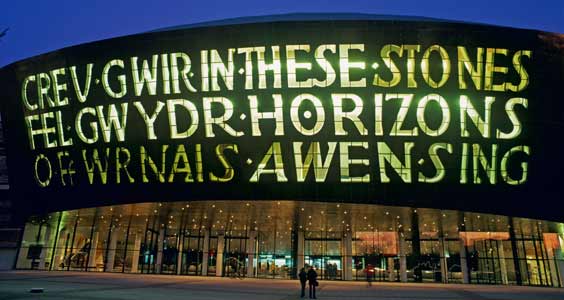- Study in AustraliaAustralian Universities/CollegesPrograms by faculty AusAustralian VisasLife in Australia
- Study In New ZealandNew Zealand UniversitiesPrograms by Faculty NZNew Zealand VisasLife in New Zealand
- Study in CanadaUniversities/Colleges in CANADAPrograms by faculty CanadaCanadian VisasLife in Canada
Culture
| Wales Culture | |||
| Arts The traditional importance of music and poetry has encouraged a general appreciation of and support for all of the arts. There is strong public support throughout Wales for the arts, which are considered important to the national culture. Financial support is derived from both the private and public sectors. The Welsh Arts Council provides government assistance for literature, art, music, and theater. The council also organizes tours of foreign performance groups in Wales and provides grants to writers for both English- and Welsh-language publications. | | ||
| Performance Arts Singing is the most important of the performance arts in Wales and has its roots in ancient traditions. Music was both entertainment and a means for telling stories. The Welsh National Opera, supported by the Welsh Arts Council, is one of the leading opera companies in Britain. Wales is famous for its all-male choirs, which have evolved from the religious choral tradition. Traditional instruments, such as the harp, are still widely played and since 1906 the Welsh Folk Song Society has preserved, collected, and published traditional songs. The Welsh Theater Company is critically acclaimed and Wales has produced many internationally famous actors. | |||
 | |||
| Language English and Welsh. Everyone speaks English and around 20% of the population speak Welsh. Both languages have official status. Literature Literature and poetry occupy an important position in Wales for historical and linguistic reasons. Welsh culture was based on an oral tradition of legends, myths, and folktales passed down from generation to generation. The most famous early bardic poets, Taliesin and Aneirin, wrote epic poems about Welsh events and legends around the seventh century. Increasing literacy in the eighteenth century and the concern of Welsh intellectuals for the preservation of the language and culture gave birth to modern written Welsh literature. Food The Welsh love their meat and one of their favourites is lamb. There are many different kinds of lamb, normally the taste of the lamb changes by what it grazes on some of the varieties include salt marsh lamb which graze on the hilly coasts of Wales that are abundant with herbs and salt tolerant plants. This gives salt marsh lamb a dark color and a sweet taste. A species of black cattle called Welsh black cattle is very popular throughout Wales as it is evenly marbled and has a soft buttery taste. Cheese is also a favourite in Wales, some of the specialities are Peli Pabo, Golden Cenarth, Oak Smoked and Celtic Promise. Religion The majority religion of Wales is Christianity, with 72 percent of the population declaring themselves as Christian in the 2001 census. The Presbyterian Church of Wales is the largest denomination. It was born out of the Welsh Methodist revival in the 18th century and seceded from the Church of England in 1811. The Church in Wales, part of the Anglican Communion, is the next largest denomination. It too was part of the Church of England, and was disestablished by the British Government under the Welsh Church Act 1914. The Roman Catholic Church makes up the next largest denomination at 3 percent of the population. Non-Christian religions are small in Wales, making up less than 2 percent of the population. 18 percent of Welsh people declare no religion. | |||
For more information, please contact one of our offices
Study in Australia | Study in the UK | Study in Malaysia | Study in Canada | Study in the USA | Study in New Zealand














